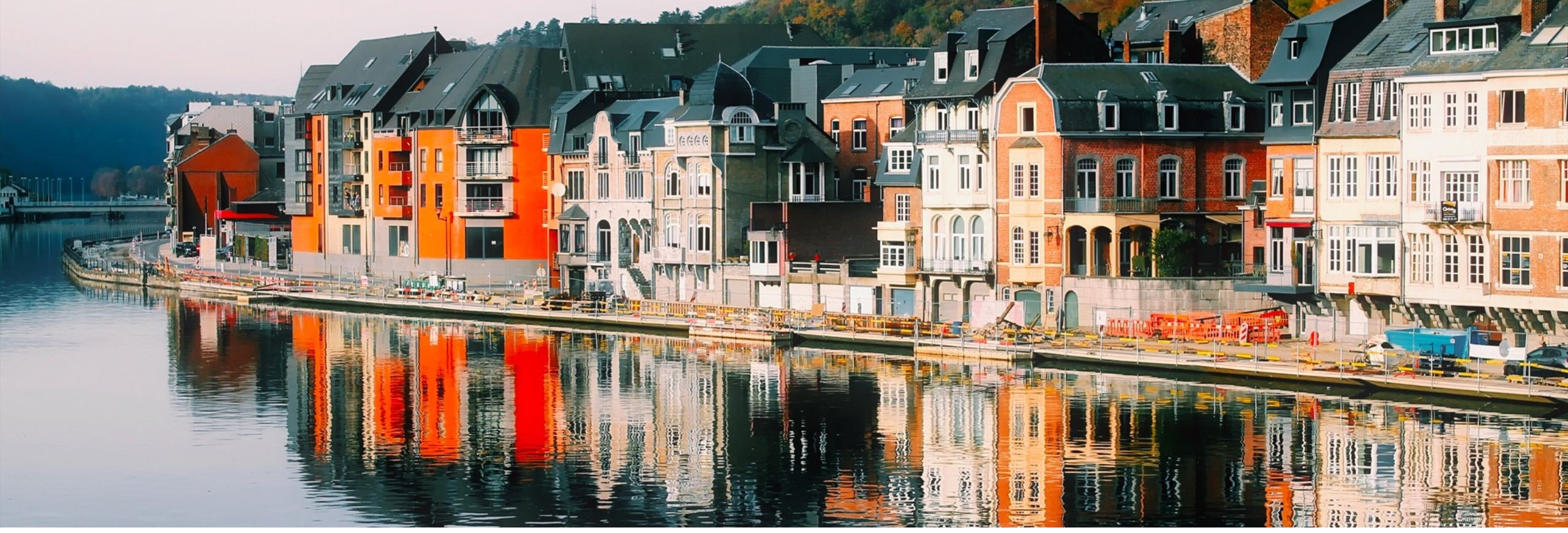Moving to Belgium from the UK
How to Emigrate to Belgium

Emigrating to Belgium involves a variety of considerations, including your age, occupation, and nationality. Despite Belgium's strict immigration laws, it remains an attractive destination for many, with one of the highest immigrant populations worldwide.
Belgium offers a rich cultural experience, making it a popular choice for expats. Nearly 1.5 million residents in Belgium are foreign-born, accounting for almost 12.5% of the total population.
Despite its small size, Belgium boasts some great attractions, from its historic cities like Bruges and Antwerp to its role as the home of many EU institutions.
Belgian Visa Overview
Once you've decided to make Belgium your new home, understanding your visa requirements is the next step.
As a member of the European Union, Belgium allows citizens of other EU member states to move freely under the Freedom of Movement Act. However, if you're from outside the EU or EEA (European Economic Area), you may need a visa to enter Belgium, depending on your nationality, the purpose of your visit, and the duration of your stay.
Belgium offers various visa options, primarily categorised into short-term (Schengen) visas and long-term (D) visas:
- Belgian Schengen Visas (Short-term Visas): A short-stay Schengen visa, or C visa, allows you to stay in Belgium and other Schengen area countries for up to 90 days within a 180-day period. British citizens, despite the UK’s exit from the EU with Brexit, do not require a Schengen visa for short visits to Belgium.
- Belgian Long-term Visas (D Visa): A long-term visa allows stays in Belgium for three to six months. Once in Belgium, you can apply for a residence permit and potentially obtain permanent residency. British citizens planning to stay for more than 90 days should obtain a long-term visa.
Requirements for a Long-stay Visa (D Visa) in Belgium
The specific requirements for a long-stay visa depend on the type of visa you're applying for. However, some standard documents you'll need include:
- Long-stay Visa Application Form: Obtainable from the Belgian embassy or consulate.
- Valid Passport: Must be valid for at least five years and contain at least two blank pages.
- Passport Photos: Two recent (within six months), coloured photos sized 35x40mm.
- Health Insurance: Coverage for your entire stay in Belgium.
- Civil Status Documents: Birth, marriage, or death certificates as required.
- Visa Payment: Payable at the embassy, consulate, or nearest visa application centre.

Studying in Belgium
Students from non-EU countries planning to study in Belgium for over three months should apply for a student visa. This visa is available if your primary purpose in Belgium is education, you have sufficient financial funds, and you hold health insurance. You must also provide proof of acceptance from a recognised Belgian institution, a valid passport, and a clean criminal record.
Working in Belgium
Working in Belgium is possible if you're from an EU/EEA country or hold the necessary Belgian work visa. The country is home to several global companies and international organisations, making it an ideal place for expats seeking employment. With a relatively low unemployment rate of 6.6% and a strong presence in sectors like manufacturing, legal services, finance, tourism, and media, Belgium offers a range of opportunities.
Types of Belgian Work Permits
To work in Belgium, you need a valid work permit. There are three main types:
- Work Permit A: Valid for all employers and paid occupations indefinitely. To qualify, you must have worked for four years under a Type B permit within a ten-year legal stay in Belgium.
- Work Permit B: Specific to a job and employer, typically issued when there is a shortage of qualified candidates or for certain skilled positions like managerial roles, academic staff, and entertainers.
- Work Permit C: Available to some temporary residents, such as students or family members of consular officials. It allows employment in any field for the duration of your residence permit and is valid for 12 months, with the possibility of renewal.
European Blue Card
The European Blue Card is a combined work and residence permit for highly skilled non-EU citizens who plan to live and work in Belgium for more than 90 days. To qualify, you must have a permanent or minimum one-year employment contract with a recognised Belgian company, a higher education qualification, and a gross annual salary exceeding EUR 51,882.
Professional Card for Self-employment
Non-EU citizens aiming to work in self-employed sectors in Belgium must apply for a professional card. This card authorises you to engage in professional activities in Belgium.

Passports and Travel
When travelling to Belgium or any other EU country, your passport must be under 10 years old and valid for at least three months beyond your intended departure date. As a British citizen, no visa is required for short visits to Belgium, but your stay must not exceed 90 days within any 180-day period. Ensure that previous visits to Schengen countries are considered when calculating your 90-day limit.
Healthcare in Belgium
Before moving to Belgium, obtaining a UK Global Health Insurance Card (GHIC) or a European Health Insurance Card (EHIC) is advisable. These cards grant you access to state-provided medical care in Belgium. If you don’t have a GHIC or EHIC, you can apply for a provisional replacement certificate through the NHS Overseas Healthcare Team.
While the GHIC or EHIC covers necessary medical treatment, it’s not a substitute for comprehensive travel insurance. Ensure you have both before moving to Belgium.
In case of a medical emergency, dial 112 for assistance. If you require specialised treatment, contact your medical assistance provider for guidance as soon as possible.


Let Us Help You Move to Belgium from the UK
Moving to Belgium from the UK? We provide expert help with visas, immigration and tax matters to make your transition smoother. Contact us for tailored support.
Moving to Belgium from the UK? We provide expert help with visas, immigration and tax matters to make your transition smoother. Contact us for tailored support.